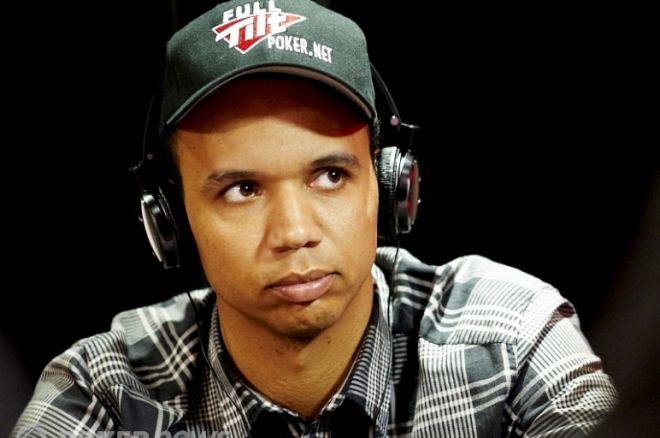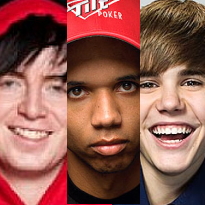Luciaetta Ivey
The Borgata casino claims Ivey brought a female guest to the table who was a master at identifying the value of a card based on the pattern and she would tip him off so he could adjust his betting. 151.1k Followers, 42 Following, 15 Posts - See Instagram photos and videos from Phil Ivey (@philivey). Phil Ivey - Wikipedia. Phillip Dennis Ivey Jr. (born Jan 21, 2021) is an American professional poker player who. In December 2009, Ivey and his then wife, Luciaetta, filed a joint petition for divorce after seven years of marriage.The divorce was granted on.
Back in 2012, poker superstar Phil Ivey ventured into the Borgata Casino Resort in New Jersey to play Baccarat. After making some unusual requests, often granted to high rollers, Ivey proceeded to win more than $10,000,000 during his trip. All seemed above board until he took down similar winnings from another casino in Great Britain. After a British court convicted him of cheating the British casino with a process called edge-sorting (noting imperfections in decks of cards around the edges), he was called upon to pay back winnings taken from the British casino. The winnings had already been frozen by the casino pending investigation.
The legal action was duly noted by security officials at the Borgata, who subsequently filed a suit against Ivey in a New Jersey court. The Borgata won its case and Ivey was ordered to make full restitution to the casino. The ruling came down in 2016 and since then, it’s been a game of cat and mouse while the Borgata attempts to collect on its judgement. Issues like this don’t occur online. By the way, you can find out which mobile casinos are the best at Mobile Casino Kings.
Ivey’s 2019 WSOP Earnings Seized
Working in conjunction with Caesar’s Entertainment, Marina District Development Co, LLC (the ownership group behind the Borgata) was able to secure permission to garnish any poker winning Ivey might claim from any tournaments run by properties that operate under the Caesar’s name.
In an unusual move, attorneys for Borgata had a “writ of execution” delivered to WSOP Tournament Director Jack Effel. In that writ, the Borgata attorneys requested on behalf of the New Jersey court that “any assets due Mr. Ivey from…Event #58 (and WSOP bracelet if he is the winner)” be subsequently seized by federal agents to help offset the outstanding previous judgment against Ivey.
During the tournament, he made a solid run, entering day three of the tournaments as chip leader. While things got a little tougher over the rest of the event, Ivey was able to finish sixth to lay claim to prize money in the amount of just over $124,000. While that amount would have ordinarily been awarded to Ivey upon completion of the tournament, the funds were frozen.
In an effort to fulfill its obligation under the order from the New Jersey court, the frozen earnings were eventually turned over in the form of a check issued by Caesar’s International to the U. S. Marshals Service. Having fulfilled the company’s obligation under this particular court order, Caesar’s asked for and was granted release from any further liability.

US Poker Playing Future for Ivey
Having received confirmation future pokers earnings made in the US would likely fall under a similar fate, there’s a good chance Ivey’s poker playing days in America could well be over. With just under $10,000,000 outstanding under the current judgement, it simply doesn’t make sense for him to continue playing in jurisdictions that will seize his prize monies. Regardless of the current state of his financial affairs, he is still a poker professional who makes a living claiming prize money.
Phil Ivey calls himself 'the greatest poker player of all time,' but a casino in Atlantic City has accused him of being something else: a cheat.

In a lawsuit, the Borgata claims Ivey pocketed more than $9.6 million by cheating at baccarat, the card game made famous by James Bond where the object is to pick the hand with the value closest to nine.
As a well-known poker pro who has won nine World Series of Poker bracelets and nearly $22 million in prize money, Phil Ivey was allowed to make a lot of requests. When he visited the Borgata in 2012, he requested a private pit, a particular set of playing cards and an automatic shuffler. Initially the hotel was happy to oblige the gambler, but now the casino thinks he made those requests just so he could cheat, reports CBS News correspondent Vinita Nair.
The casino claims in court documents that Ivey and a female accomplice studied the edges of the playing cards for tell-tale imperfections. Once Ivey knew the value of those cards, he could then make big bets when those cards were re-dealt. It's a tactic called edge-sorting.
Gaming consultant Eliot Jacobson said playing cards often have irregular patterns along the edges because of printing errors.

'The casinos should be more careful with the cards they use, but the truth is that most of the decks of cards that are out there have some sort of design flaw,' he said.
According to the Borgata lawsuit, Ivey visited the casino four times in 2012. He was betting as much as $100,000 per hand.
The casino says edge sorting gave Ivey at least a 6.5 percent edge over the house, or more than $6,500 dollars won for every $100,000 wagered.

'By itself, there's nothing inherently wrong with edge sorting,' Jacobson said. 'The question is what else did he do? Did he involve the dealers in some sort of collusion? Did he work out some sort of deal with the card manufacturer?'
Borgata officials finally caught on after Ivey's fourth visit, when they learned he had been accused of edge sorting by the London casino Crockfords, which withheld more than $12 million of his winnings just two months earlier.
Ivey filed a lawsuit to force Crockfords to release his earnings, and this time he's betting on the law.
Phil Ivey Net Worth
Ivey's representative told CBS News that Ivey takes the matter seriously and will defend himself against any questions of his integrity. Edge sorting has never been declared illegal anywhere, which means Ivey's cases could have the potential to set a big precedent.